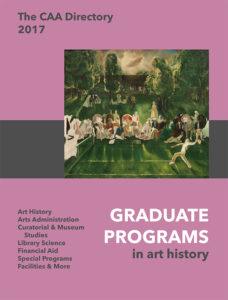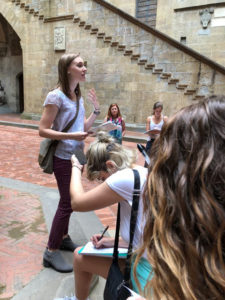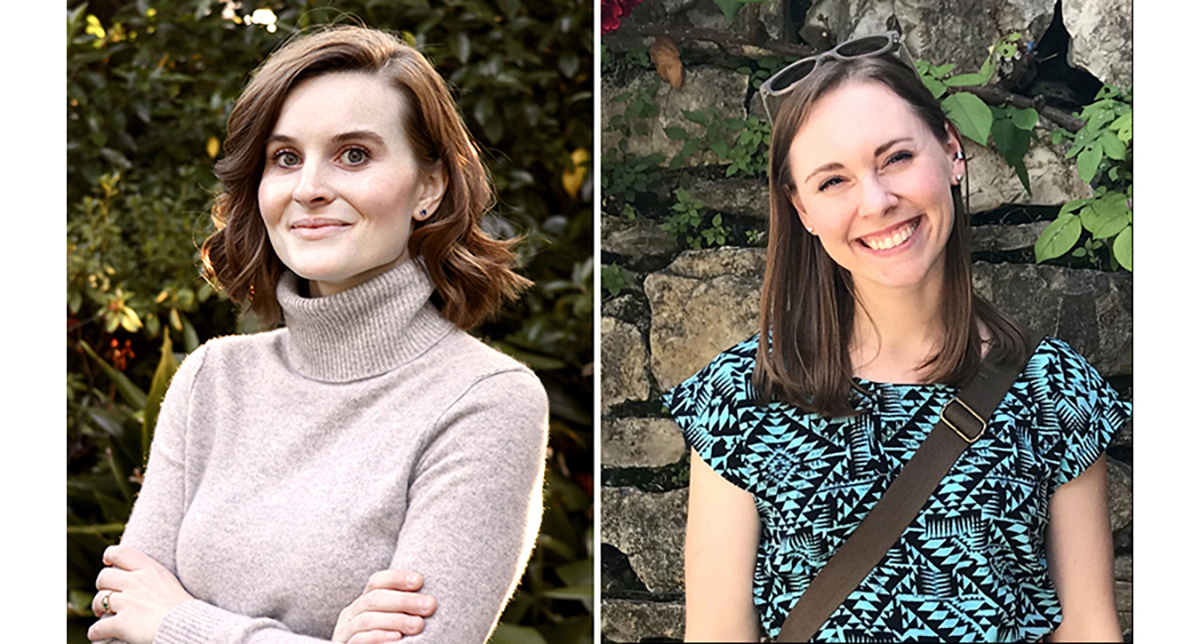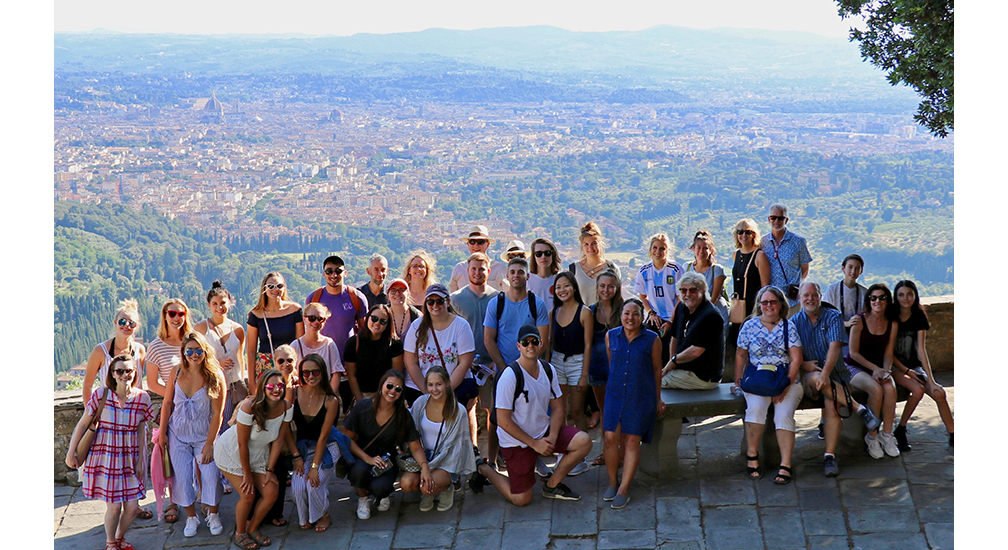Students Interview Students: Expert Advice on Graduate School Applications
Undergraduate student authors Michael Wood and Rebecca Clendinen interviewed doctoral candidates Ashley Lindeman and Rachel Carlisle for advice on applying to graduate programs in Art History. Here’s what they learned:
We’ve all been there, balking at the 1,680,000+ hits that we are greeted with after typing “art history graduate programs” into the Google search bar. The process of moving on to the next stage of your education can be intimidating, but talking to people who have been there and gotten through it can shed some light on the subject. We met with graduate students Rachel Carlisle and Ashley Lindeman, who were able to share their experiences and some important things to think about when sorting through choices and preparing application materials.
 Understanding what you as an applicant are looking for, and what you have to offer, is the first step in choosing the graduate programs you will apply to. Consider your strengths as a student as well as the research areas you are interested in. Ashley and Rachel also advise a realistic attitude about personal factors – such as location, requirements, and funding – that will affect your choice. The College Art Association provides a Directory of Graduate Programs in Art History listing degrees and courses offered, faculty, requirements, resources, fees, and other financial information. Bear in mind that the latest information about each program will be on the institution’s website, so follow up with careful research of the programs and faculty you are considering. It is vital to know the scholarship of the professors you may work with and the courses they offer. Look for information about the students they are currently working with, and dissertations they have directed.
Understanding what you as an applicant are looking for, and what you have to offer, is the first step in choosing the graduate programs you will apply to. Consider your strengths as a student as well as the research areas you are interested in. Ashley and Rachel also advise a realistic attitude about personal factors – such as location, requirements, and funding – that will affect your choice. The College Art Association provides a Directory of Graduate Programs in Art History listing degrees and courses offered, faculty, requirements, resources, fees, and other financial information. Bear in mind that the latest information about each program will be on the institution’s website, so follow up with careful research of the programs and faculty you are considering. It is vital to know the scholarship of the professors you may work with and the courses they offer. Look for information about the students they are currently working with, and dissertations they have directed.
The application process is a two way street. The decision is also about what you have to offer as a scholar. Rachel explains that universities look for students with solid records of success in the classroom, as well as an engagement with the academic community beyond the home institution. Ashley adds that internships and extracurricular activities can go a long way to show your engagement. Universities want to see you actively pushing yourself and expanding your experiences.
 A writing sample constitutes part of the application process, so if this is not your strong suit, you have work to do. Read peer-reviewed scholarship and become familiar with the correct way to write as an art historian, practice your skills, refine your papers, and reach out to professors and TAs for advice. Anyone who has been through the process can help you, but you have to ask. Building those relationships – especially with professors – will not only help you improve your skills now, but also begin to build a network in your field which will continue to support you.
A writing sample constitutes part of the application process, so if this is not your strong suit, you have work to do. Read peer-reviewed scholarship and become familiar with the correct way to write as an art historian, practice your skills, refine your papers, and reach out to professors and TAs for advice. Anyone who has been through the process can help you, but you have to ask. Building those relationships – especially with professors – will not only help you improve your skills now, but also begin to build a network in your field which will continue to support you.
Keep in mind that letters from professors are crucial in the application process, and responsible scholarly habits and communication are crucial for getting those letters. Show up on time for classes and office hours, and participate actively in class. If you become more than just a name on an attendance sheet, professors will be more inclined to write you a personal letter of recommendation.
College can be a trying time. Balancing your schedule and finances is critical for your education as well as personal health. There will be times when you have to work a job unrelated to your field, and it’s important to remember that this is not unusual; the journey can look different for each person. Rachel explains that you should never discount those experiences that can teach you skills applicable to your future. An application committee will see your growth and gained experience if you let them. Even a menial, minimum-wage job is a learning experience on how to work hard, how to work in groups, and how to communicate with others – valuable lessons that you should include in describing your experience and potential as a graduate school candidate.
So, while it is not unusual for the application process to be intimidating and stressful, there are clear paths to success, and mentors to help you find them. If you are committed to your future and willing to work, you can go farther than you ever expected.
Special thanks to Rachel Carlisle and Ashley Lindeman for giving us a peek into the process and for providing helpful, encouraging information.

